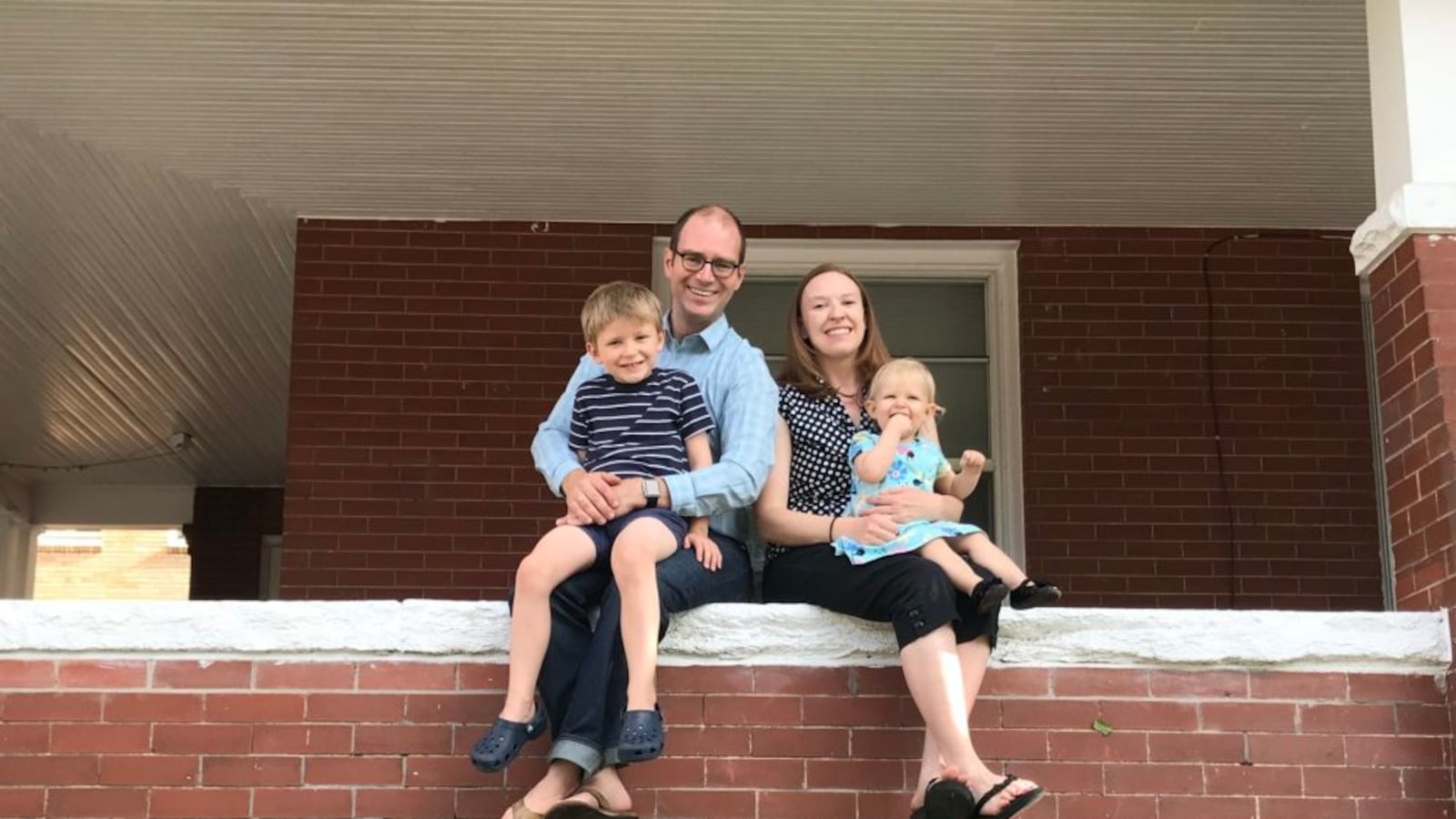A Methodist pastor who gave an impassioned speech on the steps of the state Capitol in support of Denver teachers during February’s strike is running for school board.
Brad Laurvick is pastor at Highlands United Methodist Church in northwest Denver, and the father of a first-grader in Denver Public Schools. He is vying for the seat held by Lisa Flores, who is not running for re-election.
He has two opponents: former Denver teacher Julie Bañuelos and longtime parent volunteer Tony Curcio. Both Bañuelos and Curcio ran unsuccessfully for school board in the past.
Laurvick was a high-profile presence during the February teacher strike, taking the microphone more than once to address hundreds of teachers in support of their cause. He got involved after attending a public bargaining session to see for himself what the issues were.
“Let’s just name this very clearly: We shouldn’t have to be here,” he said on the first day of the strike. He referenced the school board specifically: “If the school board checks its voicemail or its inbox, they will find more phone calls or emails than they will ever imagine. Parents know the way to keep good teachers is good base pay. So hey, DPS, why aren’t you listening?”
Sitting on his front porch last week, Laurvick adopted a more measured tone and avoided taking firm positions on the district’s most contentious issues. The father of two children ages six and two, who volunteers at his older child’s school, described himself as a “coalition builder.”
“The idea of being on a school board is not about trying to reach a certain number so you know you can win a vote,” he said, referring to the fact that at least four of Denver’s seven board members must vote in favor of a policy for it to take effect. Instead, he said, it’s about making sure that “whatever the outcome, the process had just as much integrity as the result does.”
But the politics surrounding Denver’s school board are highly divisive, and this year’s election features a coalition of local community groups who want to “flip the board” in November. Laurvick said he agrees that change is needed, but he also values “spending time listening to people who have passionate ideas that are different than mine.”
One of the main issues driving his candidacy, Laurvick said, is wanting to increase opportunities for students, parents, teachers, and community members to weigh in on district decisions.
“People are tired of being talked at and want to be listened to,” he said. There is a difference, he said, between “broadcast communication” informing parents of a decision, “versus sitting down to have the conversation of, ‘What are you feeling? What are you experiencing?’”
Another driver of his campaign is a desire for greater financial transparency. Laurvick said he’d like to see the school board evaluating the district’s $1 billion budget line by line.
“As someone who runs a nonprofit, I believe in fiscal transparency,” Laurvick said. “I’m proud of every dollar the organization I care for spends.” When an organization’s finances are not transparent, he said, its values aren’t clear.
Although he counts his nonprofit experience among his qualifications for the board, Laurvick draws a clear line between his role as pastor and his candidacy. He sent an email to his congregation making clear that he won’t talk about the campaign on Sunday mornings. The congregation does not endorse candidates and won’t in this race, either, he said.
One hot-button issue affecting schools in northwest Denver is declining student enrollment, due largely to rising housing prices pushing families out of the region. The school board has talked about forming a subcommittee to address the issue, which could involve consolidating small schools. Laurvick did not offer a solution. Instead, he emphasized the importance of taking the community’s ideas into account before moving forward with any plan.
On the topic of school choice, a key part of the Denver district’s approach, Laurvick said he believes choosing a school “should be about access to variety, not a search for quality.” He said families should have the choice to attend a Montessori or dual-language program, for example, but they should not have to drive across the city to find a school that is high quality.
He did not offer an opinion on charter schools, which are publicly funded but independently run. Sixty of Denver’s more than 200 schools are charters, and they can be controversial.
Two other school board seats are also up for grabs in November. Neither race will feature an incumbent because the current officeholders are barred by term limits from running again.
The fields are getting more crowded as candidates continue to jump into the race. Thus far, four candidates are running for an open seat representing southeast Denver, which is currently held by board President Anne Rowe. Three candidates are running for an open seat representing the city at-large that is currently held by board member Happy Haynes.

